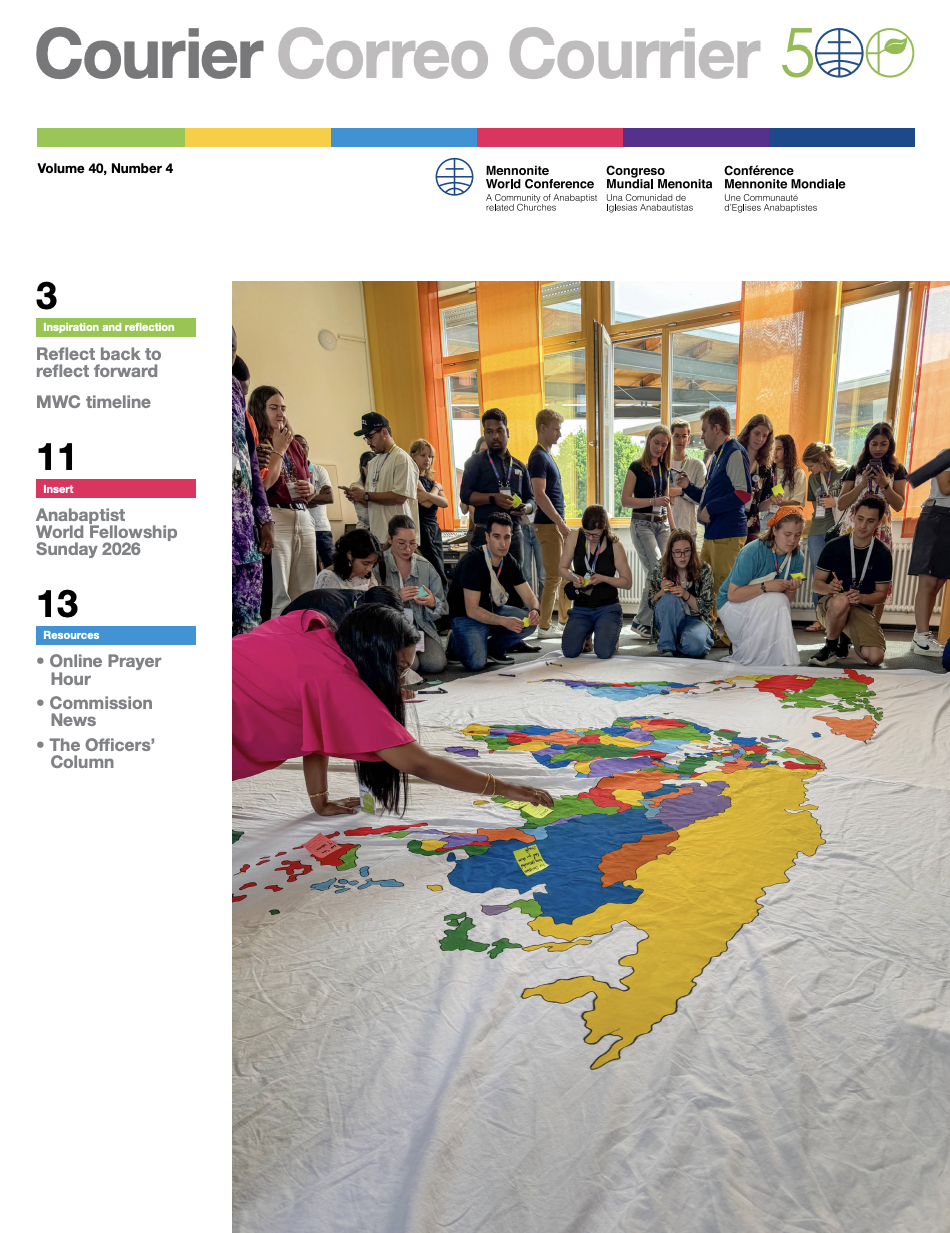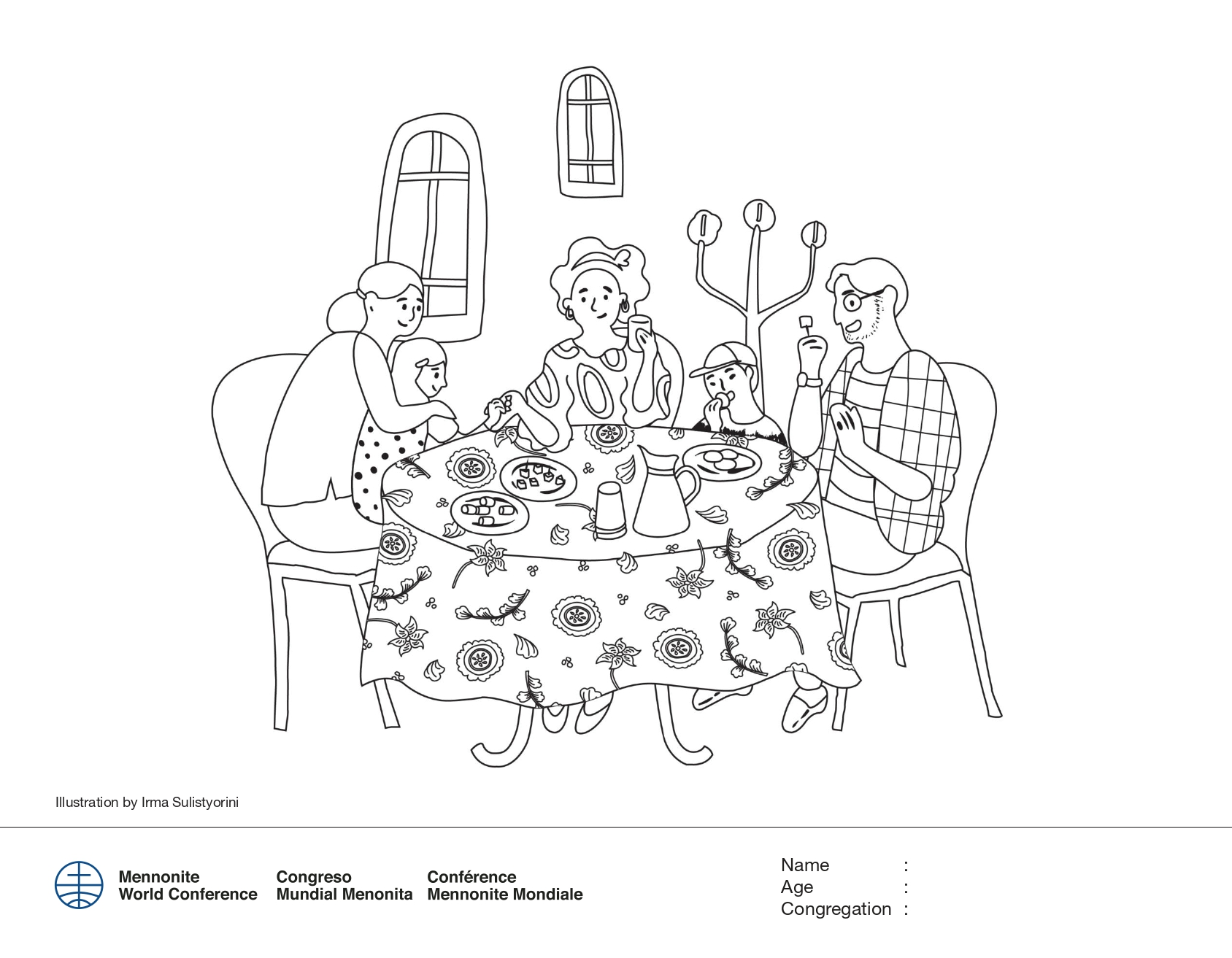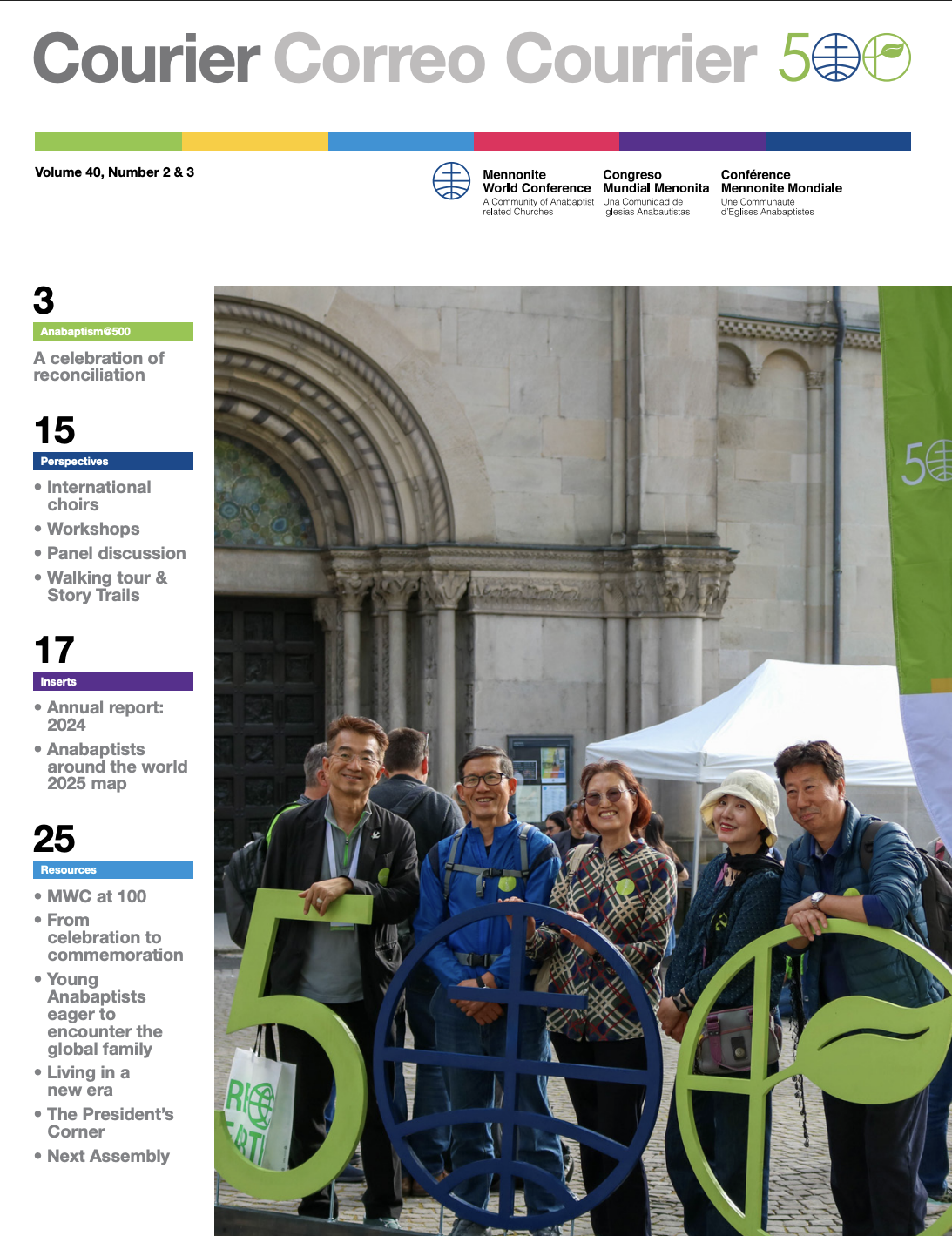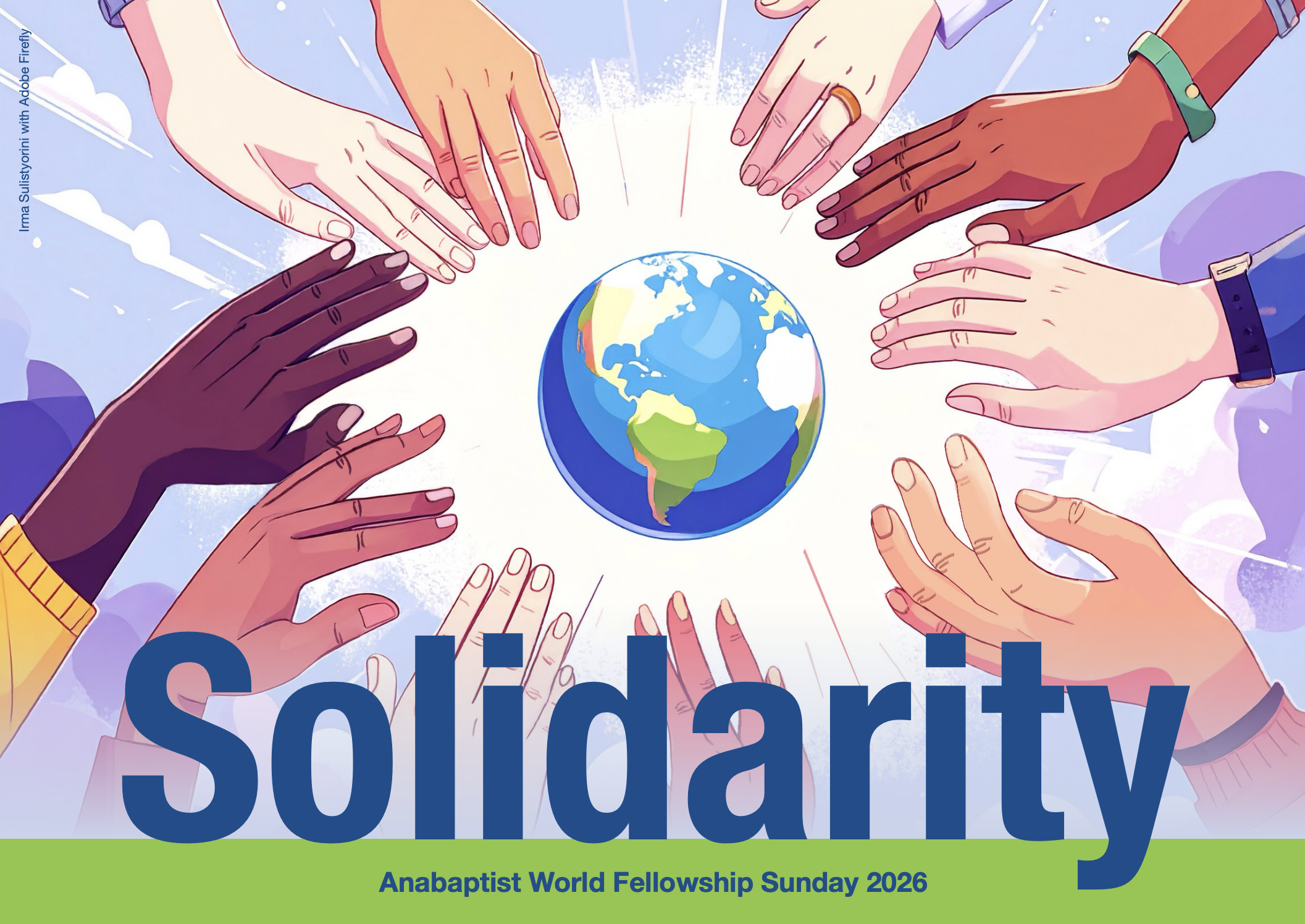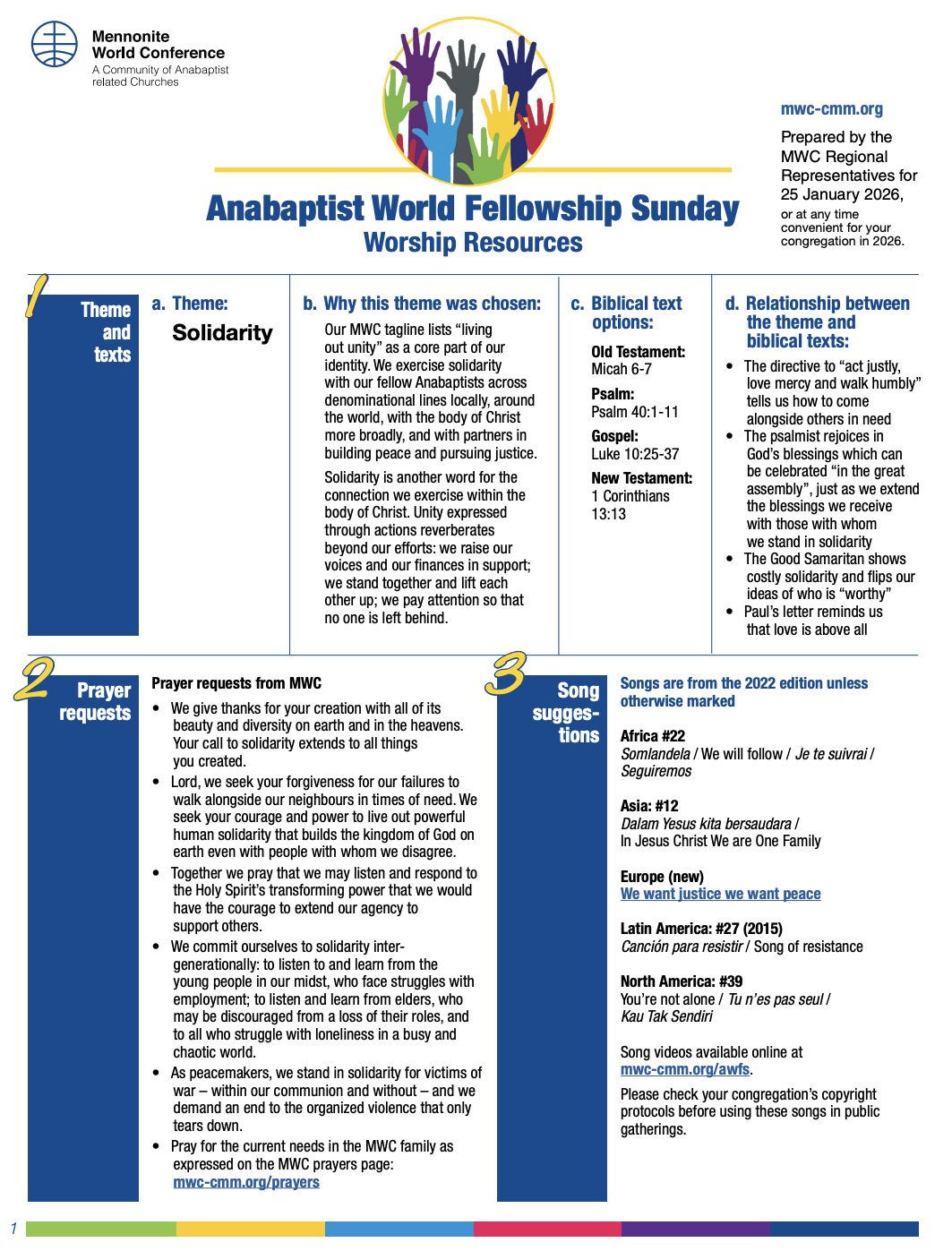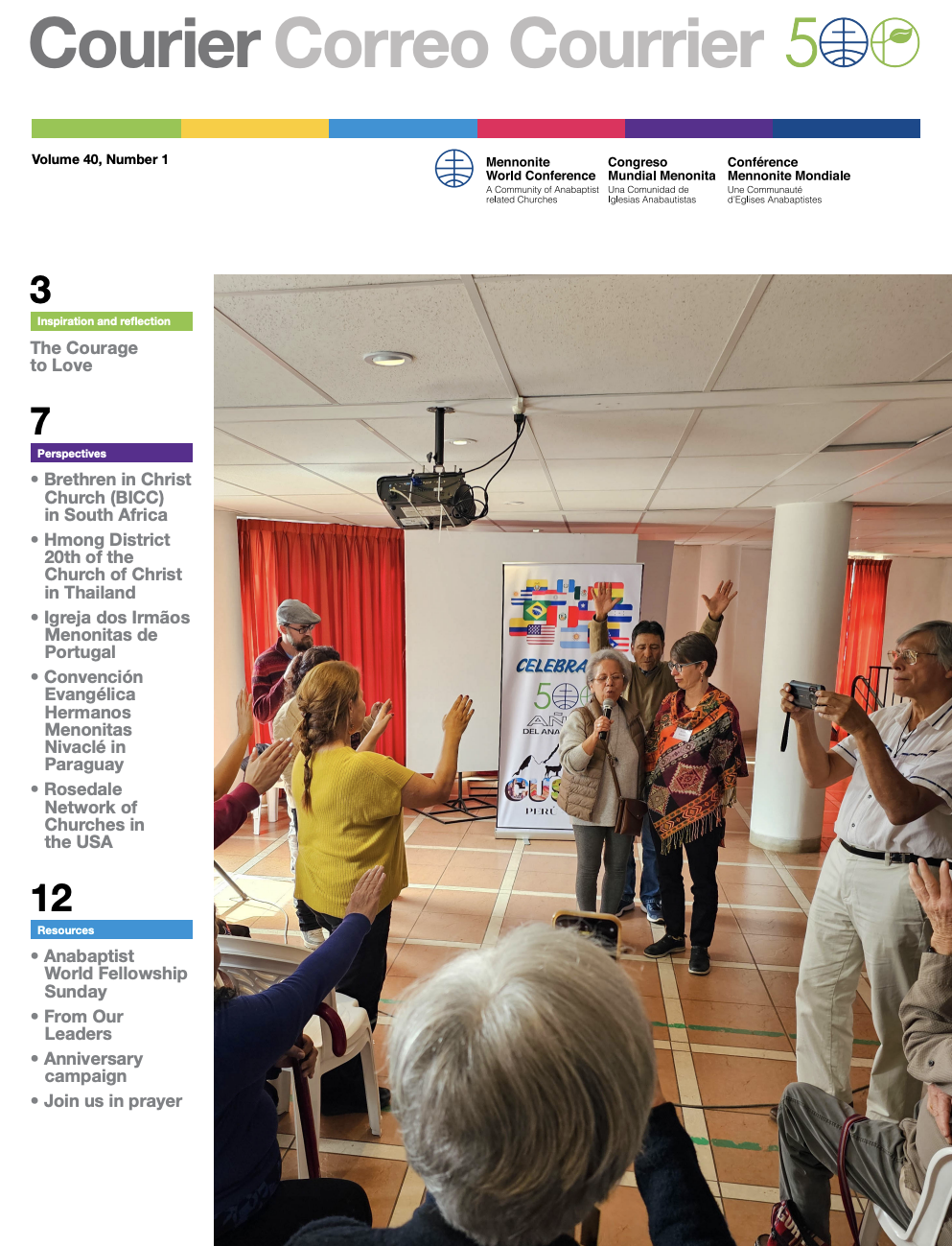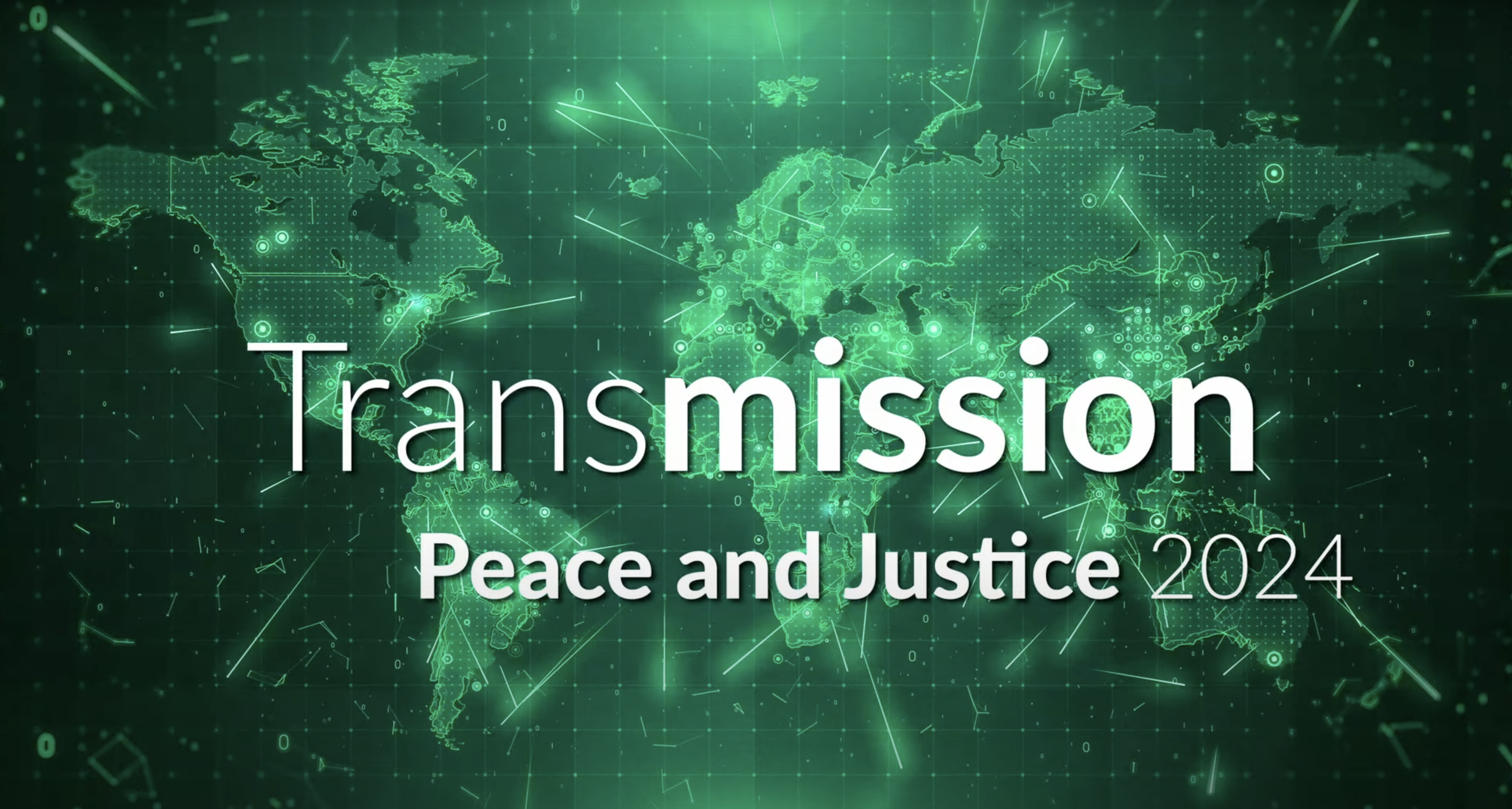-
Courier 2025 / 40.4
Unity is God’s gift “So that they may be one, as we are one,” Jesus prayed in John 17:22. This prayer for those who follow Jesus has been acutely relevant since the moment he spoke it. The Anabaptist movement whose 500th anniversary we mark this year was a “church split” at the time. The many
-
Courier 2025 / 40.2-3
This issue of Courier is a taste of the 500th anniversary Inspired by Zwingli’s famous invocation to “do something courageous!”, MWC gave the theme “The Courage to Love” to our 500th anniversary year. We marked it with a registration-free event in the streets of Zurich, Switzerland, on Ascension Day, 29 May 2025. It’s also the
-
Anabaptist World Fellowship Sunday 2026
Theme Solidarity Why this theme was chosen Our MWC tagline lists “living out unity” as a core part of our identity. We exercise solidarity with our fellow Anabaptists across denominational lines locally, around the world, with the body of Christ more broadly, and with partners in building peace and pursuing justice. Solidarity is another word
-
The Courage to Love: Anabaptism@500 event video
On 29 May 2025, Mennonite World Conference (MWC) welcomed guests from around the world to The Courage to Love: Anabaptism@500. The day-long celebration commemorated the birth of the Anabaptist movement in Zurich, Switzerland. Following workshops, concerts, a panel discussion and self-guided historical walking tours, participants gathered for a worship service with ecumenical participation at the
-
Courier 2025 / 40.1
A challenge for the ages It’s a double – even triple – anniversary for Mennonite World Conference this year. For one hundred years, Anabaptist-related national churches have been meeting together to acknowledge we are one body of Christ together, and to encourage and help each other in fellowship, worship, service and witness. For five hundred
-
Biblical and Theological Reflections on the MWC Tagline
Presented by Thomas R. Yoder Neufeld to the MWC Executive Committee at their meeting in Curitiba, Brazil, in April 2024. I. Following Jesus – “Who do you say that I am?” Introduction A year ago, at Camp Squeah in British Columbia, Canada, the EC developed a new tagline for the MWC: “Following Jesus, living out
-
Anabaptist World Fellowship Sunday 2025
Theme The Courage to Love Why this theme was chosen The first baptisms in the Anabaptist tradition took place in secret in Zurich, Switzerland, on 21 January 1525. A small group of Jesus-followers acted together with courage on their shared understanding of Scripture and the church, different from their political and religious context. Today there
-
Transmission
Transmission is the title given to a series of 5 films of 10 minutes which present Anabaptist thought to people around the world to encourage a life of faith created by Affox AG, a multimedia production company. We would like to do this by providing a glimpse at the journeys we experience as disciples of Jesus
